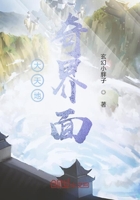"Men have often risen up against fraud, against cruelty, against rapine. But when before was it known that concessions were met with importunities, graciousness with insults, the open palm of bounty with the clenched fist of malice? Was it like trusty delegates of the Commons of England, and faithful stewards of their liberty and their wealth, to engage them for such causes in civil war, which both to liberty and to wealth is of all things the most hostile. Evil indeed must be the disease which is not more tolerable than such a medicine. Those who, even to save a nation from tyrants, excite it to civil war do in general but minister to it the same miserable kind of relief wherewith the wizards of Pharaoh mocked the Egyptian. We read that, when Moses had turned their waters into blood, those impious magicians, intending, not benefit to the thirsting people, but vain and emulous ostentation of their own art, did themselves also change into blood the water which the plague had spared. Such sad comfort do those who stir up war minister to the oppressed. But here where was theoppression? What was the favour which had not been granted? What was the evil which had not been removed? What further could they desire?""These questions," said Mr Milton, austerely, "have indeed often deceived the ignorant; but that Mr Cowley should have been so beguiled, I marvel. You ask what more the Parliament could desire? I will answer you in one word, security. What are votes, and statutes, and resolutions? They have no eyes to see, no hands to strike and avenge. They must have some safeguard from without. Many things, therefore, which in themselves were peradventure hurtful, was this Parliament constrained to ask, lest otherwise good laws and precious rights should be without defence. Nor did they want a great and signal example of this danger. I need not remind you that, many years before, the two Houses had presented to the king the Petition of Right, wherein were set down all the most valuable privileges of the people of this realm. Did not Charles accept it? Did he not declare it to be law? Was it not as fully enacted as ever were any of those bills of the Long Parliament concerning which you spoke? And were those privileges therefore enjoyed more fully by the people? No: the king did from that time redouble his oppressions as if to avenge himself for the shame of having been compelled to renounce them. Then were our estates laid under shameful impositions, our houses ransacked, our bodies imprisoned. Then was the steel of the hangman blunted with mangling the ears of harmless men. Then our very minds were fettered, and the iron entered into our souls. Then we were compelled to hide our hatred, our sorrow, and our scorn, to laugh with hidden faces at the mummery of Laud, to curse under our breath the tyranny of Wentworth. Of old time it was well and nobly said, by one of our kings, that an Englishman ought to be as free as his thoughts. Our prince reversed the maxim; he strove to make our thoughts as much slaves as ourselves. To sneer at a Romish pageant, to miscall a lord's crest, were crimes for which there was no mercy. These were all the fruits which we gathered from those excellent laws of the former Parliament, from these solemn promises of the king. Were we to be deceived again? Were we again to give subsidies, and receive nothing but promises?
Were we again to make wholesome statutes, and then leave them to be broken daily and hourly, until the oppressor should have squandered another supply, and should be ready for another perjury? You ask what they could desire which he had not already granted. Let me ask of you another question. What pledge could he give which he had not already violated? From the first year of his reign, whenever he had need of the purses of his Commons to support the revels of Buckingham or the processions of Laud, he had assured them that, as he was a gentleman and a king, he would sacredly preserve their rights. He had pawned those solemn pledges, and pawned them again and again; but when had he redeemed them? 'Upon my faith,'--'Upon my sacred word,'--'Upon the honour of a prince,'-- came so easily from his lips, and dwelt so short a time on his mind that they were as little to be trusted as the 'By the hilts' of an Alsatian dicer.















